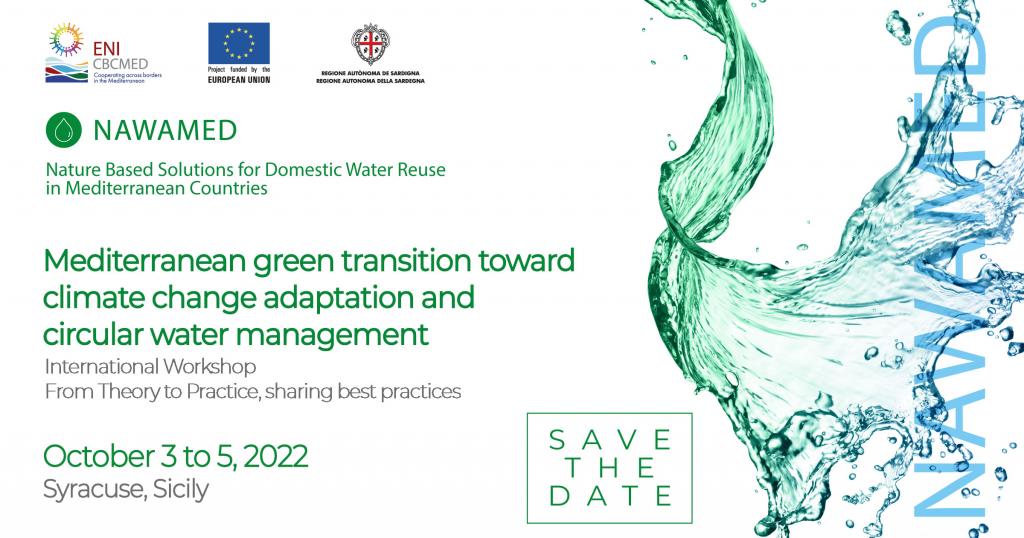NAWAMED: face the barriers, share the successful stories and a holistic approach - the winning strategy of Latina Province to improve urban water management and reuse
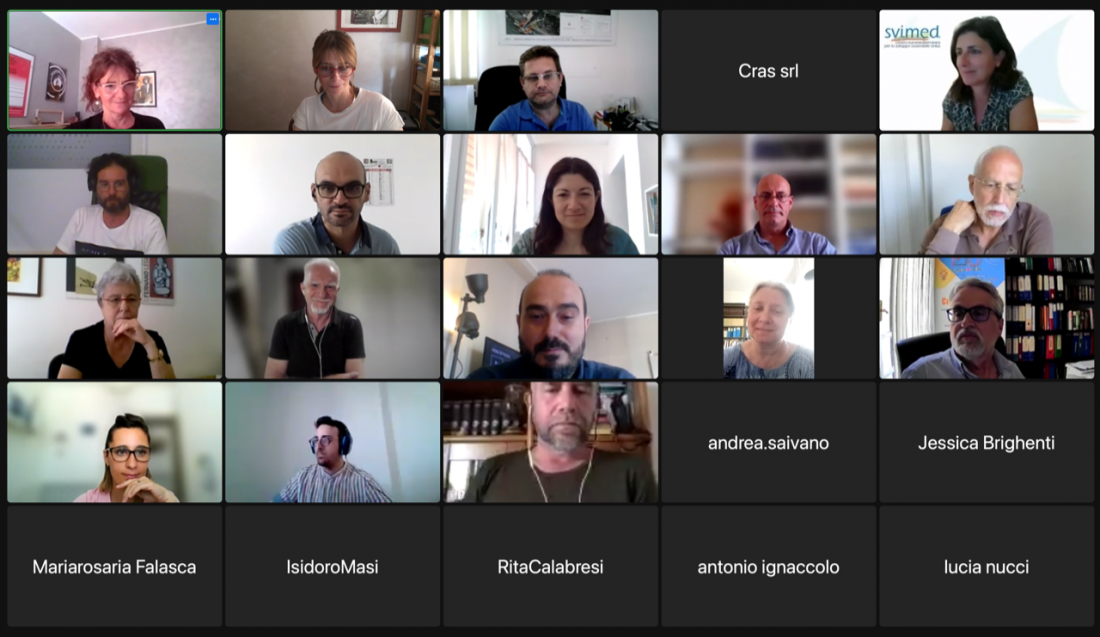
The water resource context in Latina Province, would need a very careful use of water resources due both to the important economic activities, especially agricultural ones, that need a great deal of water – as well as for the management of urban public spaces and domestic use. Moreover, there is a great problem of water losses due to the poor state of maintenance of the water pipeline. Currently, there are cultural barriers about reuse but also technical and regulatory barriers that do not allow an easy path to optimizing the resource.
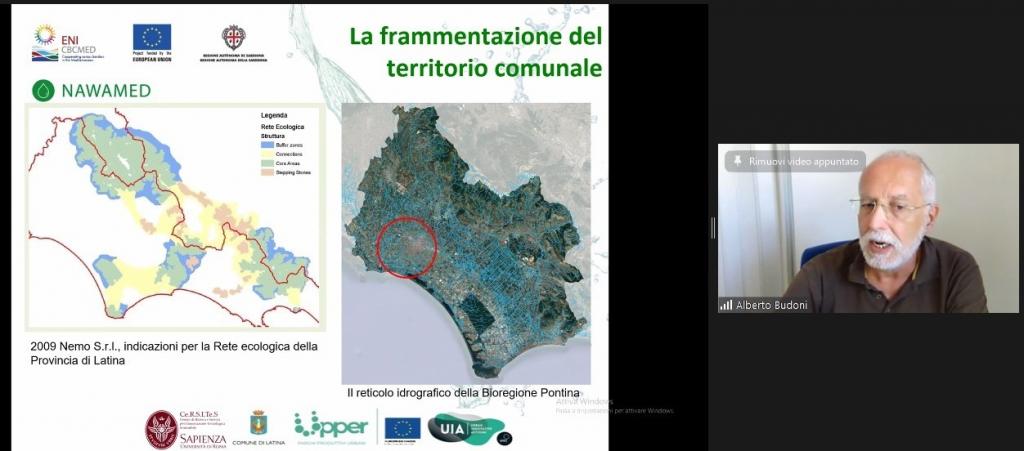
The Province of Latina implemented, in the context of NAWAMED project, a cycle of four meetings called “Water Table” on the management and reuse of water resources in urban areas - between May and July 2022.
In each “Water Table” the theme was examined in depth with respect to a specific aspect: in the first meeting barriers and criticalities were discussed, in the second one good practices were discussed, in the third one technical and economic feasibility of the interventions, and in the fourth one the tools to realize projects and interventions – both deepening the financial resources availability and the planning local tools to be activated.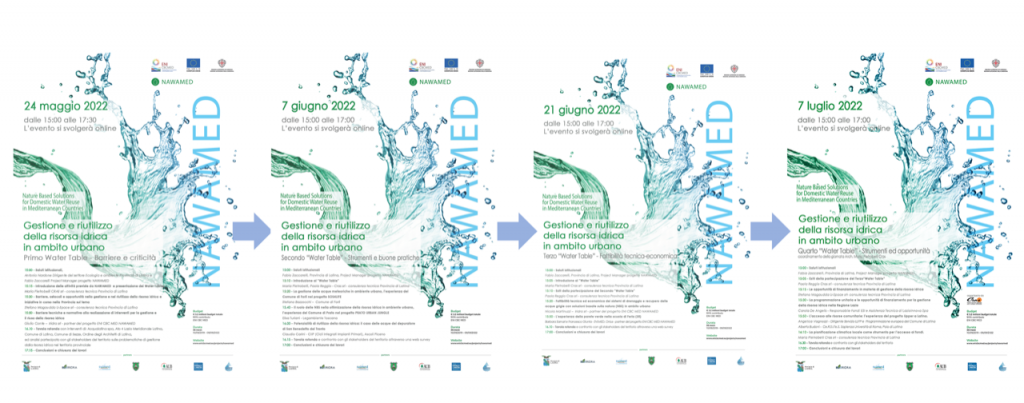
A total of 13 speakers and more than 30 different stakeholders from the area took part in the meetings and actively exchanged ideas, knowledge and experiences with respect to the theme of water resource management, bringing the more general issues to applied in the Pontine area. The stakeholders actively participated in the round table by contributing to the debate and filling in the questionnaires proposed every time with respect to the topic of the day.
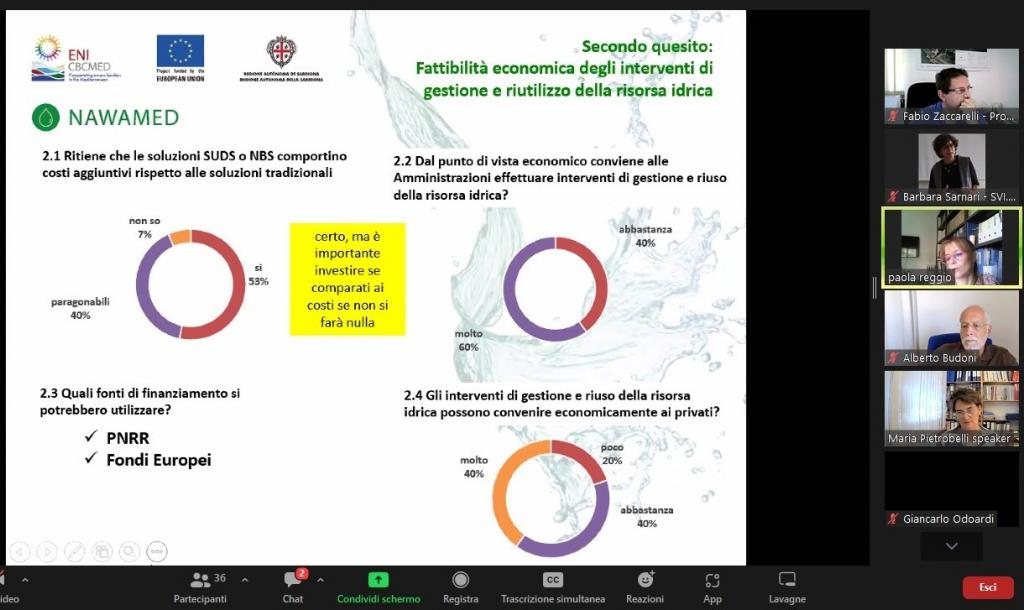
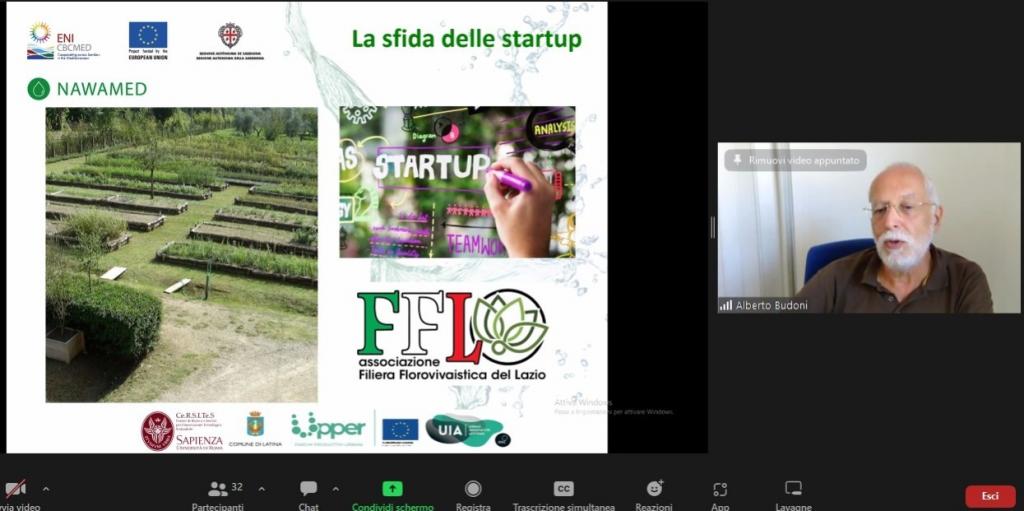
A strong interest emerged in the topic and problems mainly related to the training of technicians and administrators in dealing with water resource reuse and management projects in urban areas.
In the “Water Tables” several successful cases in Italy or abroad were shown like best practice, like the experiences of Forli municipality with the SOS4Life project and Prato municipality with the URBAN JUNGLE project. The main problem in carrying out a project to reuse and manage water resources turned out to be the technical and economic feasibility of the projects. In the case of the green wall of the school in the municipality of Ferla in Sicily (installed in the context of NAWAMED project), these aspects were tackled and solved by bringing to the same table technicians and local administrators, as well as a lot of positive energy coming from the civil society. 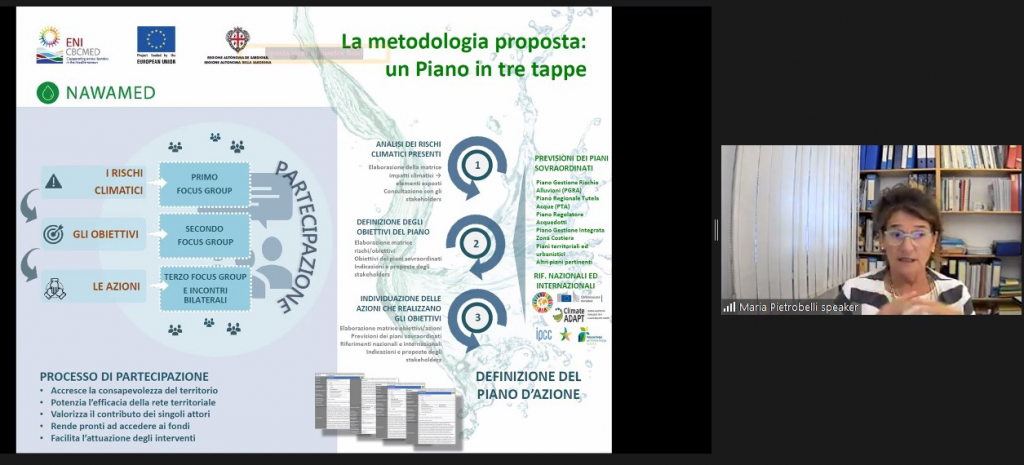
Of course, the ability to access funds by municipalities is essential for this type of projects, still characterized by an experimental character. Funding opportunities for the management of water resources in Italy and in the Lazio Region do exist and derive mainly from EU funds that represent the framework within each municipality can move to find economic support, besides other local funding like crowdfunding practice. Technical skills in this sense are growing up, as well as networks and partnership. As an example, Latina municipality recently developed a project with several international partners, funded by EU resources, aimed to develop Nature Base Solutions (NBS) to regenerate three important urban areas.

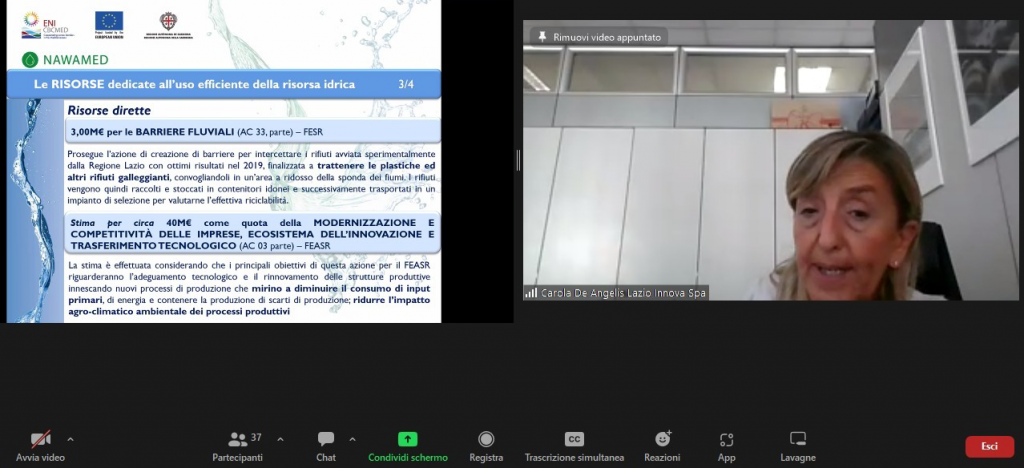
The commitment, technical capacity and resources allocated were considerable, but this process will allow many groups of citizens to elevate their life quality and to live in a more comfortable urban environment. NAWAMED project is therefore an active tool for this area to spread the culture of reuse and management of water resources and stimulate new projects.
Next appointment in Sicily where Latina Province will bring these conclusions and debate them at Mediterranean level during the international event and Mediterranean Water table that the NAWAMED partners are organising in Syracuse from the 3rd to 5th of October, 2022.
